Best Paying Jobs In Oil/Gas Transmission
by Abdul Aziz Mondal Job & Career Published on: 06 December 2022 Last Updated on: 04 March 2025

Oil fields and rigs have one of the most important and demanding tasks – drilling, refining, and transporting oil and gas. Without oil and gas, many machines like transportation vehicles will cease to function. Therefore, getting one of the best paying jobs in oil/gas transmission can be a great option.
With the demand for skilled employees, these jobs are some of the highest paying in the world. Therefore, if you want to pursue a career in the field or have the right qualifications, read this post. Here, I have explained what are some of the highest-paying jobs in this field. I have also mentioned the average annual salaries and qualifications as well.
Why Should You Work In The Oil/Gas Industry?
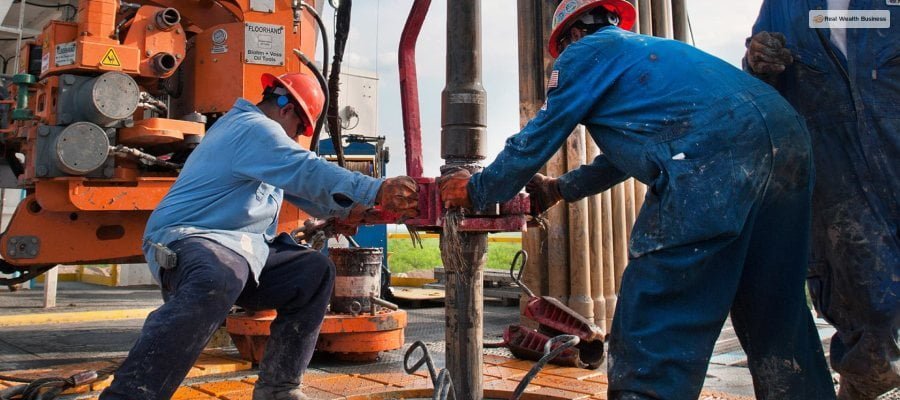
There are lots of reasons why getting the best-paying jobs in oil/gas transmission industry can be a beneficial career option for you. The primary reasons are:
- High Demand: Currently, there is a shortage of skilled employees in this field because of the demand for technical experts. This is why a good skilled candidate can land these jobs easier.
- Higher Average Salaries: Since there is an overall lack of technically skilled employees, their average salaries are higher. This is significantly more than what do public utilities jobs pay.
- Work Only Half A Year: Oil rigs and vessels are on-site and offshore for six months. Therefore, you will be spending six months working with crew mates and the other six months at home with family.
Best Paying Jobs In Oil/Gas Transmission
Some of the best paying jobs in oil/gas transmission are:
1. Gas Plant Operator
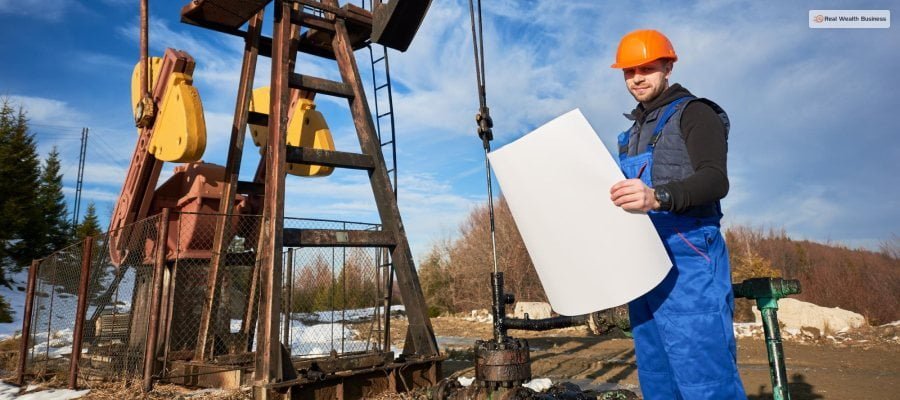
Average Annual Salary: $52,000
Minimum Qualifications: High School Diploma, GED, On-job training
Gas Plant Operators are primarily responsible for processing and distributing the oil and gas to various utility companies. Their job is to oversee all the operations in oil fields and ensure that oil and gas are timely processed. Then, it must be processed and loaded in oil barrels and distributed to various utility companies. This can be done with the help of compressors and pressure pipes, along with various semi-automatic equipment as well.
2. Well Testers

Average Annual Salary: $35,000
Minimum Qualifications: High School Diploma, GED, on-site training
Well-Testers are one of the most essential positions in every oil and gas vessel. To drive and operate the engines that drill the oil, well-testers ensure that they are working accordingly.
Therefore, as a well-tester, you have to ensure that all oil pipelines are operational using various tools to test them. You can do this using various subsurface and subsurface equipment.
3. Chemical Engineer
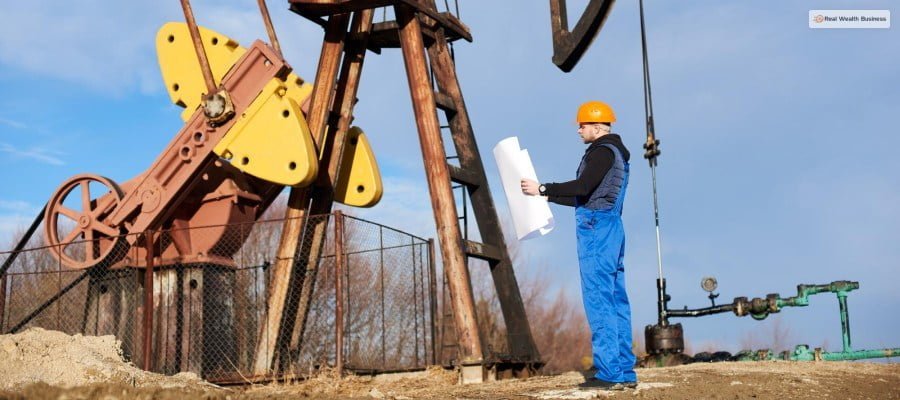
Average Annual Salary: $82,000
Minimum Qualifications: Bachelor’s Degree in Chemistry or Chemical Engineering
While drilling the oils is essential, a chemical engineer is also necessary to ensure that its conversion process goes smoothly.
As you might have already known, you cannot make use of crude oil unless it’s converted into refined oil first. Therefore, Chemical Engineers are necessary to ensure that the right quantity of chemicals is used to refine crude oil. This is why oil refineries are in constant need of good chemical engineers.
4. Petroleum Geologist

Average Annual Salary: $69,000
Minimum Qualifications: Bachelor’s Degree in Geoscience
To make the oiling industry even exist in the first place, organizations need first to find oil deposits first. Therefore, they must scour the crust of the Earth to find spots where large amounts of oil can be drilled from. This can only be done with the help of a Petroleum Geologist.
Here, your job is to use various tools and machines to scan the surface of the Earth to find oil deposits. This also includes underwater areas as well. In addition, you also have to recommend the right tools and techniques to drill the oil as well, depending on its location. This is an important post if you are interested in drilling and oiling jobs.
5. Drilling Engineer
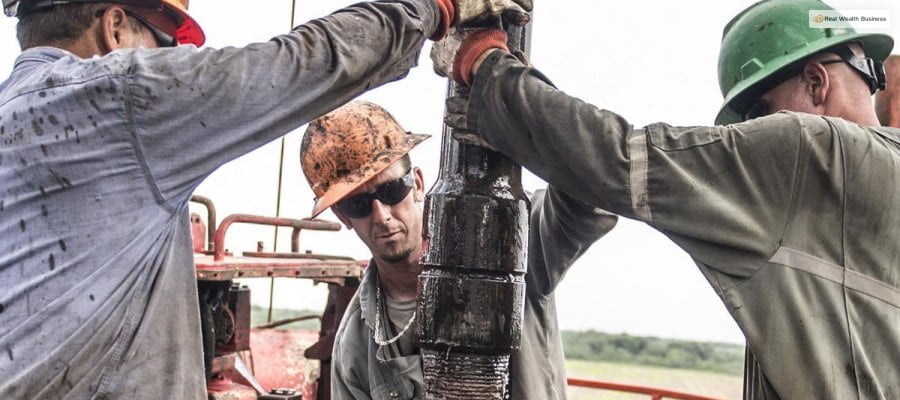
Average Annual Salary: $84,000
Minimum Qualifications: Bachelor’s Degree in Mechanical Engineering, State Certification
After the petroleum geologist finishes scanning the Earth’s surface to find oil, it’s time for the Drilling Engineer to work. With recommendations from the Geologist, the Drilling Engineer employs suitable methods to drill the oil.
Drilling engineers are required to supervise and test all equipment to ensure that oil is drilled in the right way. The method used depends on the location since it can be underground or underwater as well. This is one of the highest-paying oil rig jobs.
6. Vessel Manager

Average Annual Salary: $72,000
Minimum Qualifications: Bachelor’s Degree in Natural Science or related fields
More often than not, many of the world’s biggest oil deposits are in the middle of the ocean. This requires oiling companies to make use of offshore vessels to drill out the oil from under the sea bed. Therefore, for such offshore drilling operations, companies need a vessel and a big crew.
This is where the need for a Vessel Manager comes into the picture. Your job over here will be to supervise all operations on board and ensure the safety of all crew members. In addition, your job description also includes the need to train new crew members and oversee operations with the Director of Safety.
Read More: Why Is It Important To Dehydrate Natural Gas?
7. Crude Oil Transport Manager
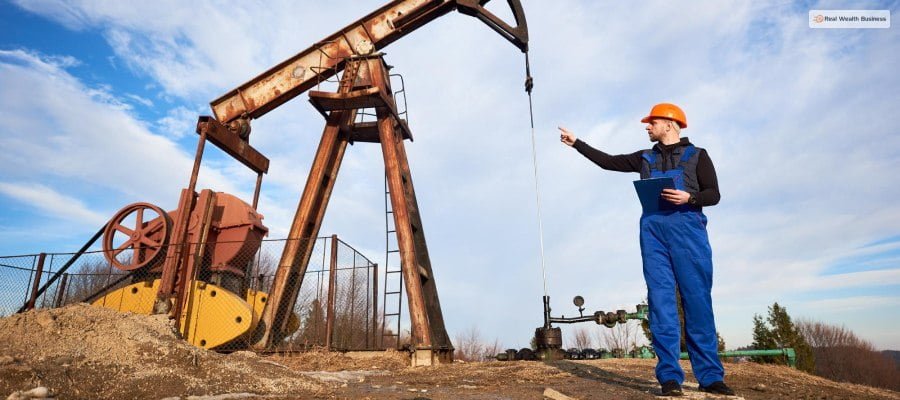
Average Annual Salary: $60,000
Qualifications: High School Diploma, GED
Transporting crude oil from one place to another is easier said than done. Since crude oil is highly flammable, it must be transported with lots of care to ensure its safety. In addition, the salary is higher than what companies are in the transportation field.
This is where the experience of a Crude Oil Transport Manager comes into play. Your job is to suggest the best transportation methods for transporting crude oil to refineries. Depending on the distance and location between the drilling vessels and refineries, you need to select the optimum transportation method. This can be through good carrier vessels, trucks, or a mix of both.
8. Director Of Safety

Average Annual Salary: $85,000
Qualifications: Bachelor’s Degree in related fields
The safety of all drillers, crew members, and other employees is the main responsibility of the Director of Safety. Since these operations require the use of heavy machinery and specialized labor, it can be hazardous for them if faults and issues appear in pipelines and aboard the vessels.
Therefore, your job over here will be to ensure that all operations are going smoothly without any faults. In addition, you must ensure that all vessels and crew members must abide by State Policies. You must oversee operations so that no one gets injured in the process.
Frequently Asked Questions (FAQs):
Aspirants who wish to enter this field have several queries regarding the best paying jobs in oil/gas transmission. Here are some of their answers:
Ans: The biggest oil and gas companies with the highest salaries are:
➊ Chevron
➋ BP
➌ Royal Dutch Shell
➍ Pemex
Ans: Compared to other industries, the entry and mid-level jobs in this sector pay more. This is because getting a job in oil/gas transmission requires a lot of technical expertise, and employees can potentially face various hazards as well.
Ans: Yes, oil and gas transmissions currently have a shortage of skilled employees. In addition, oil and gas are two of the most used natural resources. Therefore, as long as oil and gas can be drilled, this industry has a bright future.
So, Are You Interested In Getting A Job In Oil/Gas Transmission?
Getting any one of the best paying jobs in oil/gas transmission is a pretty good career option. This is because all these jobs pay well and are currently in high demand.
You should target jobs like drilling engineer, chemical engineer, and petroleum geologist for more technical jobs. If you are into management, then the Director of Safety and the Vessel Manager can be good posts to aim for.
If you are interested in one of these jobs, tell me in the comments down below!
Read Also:



































































































